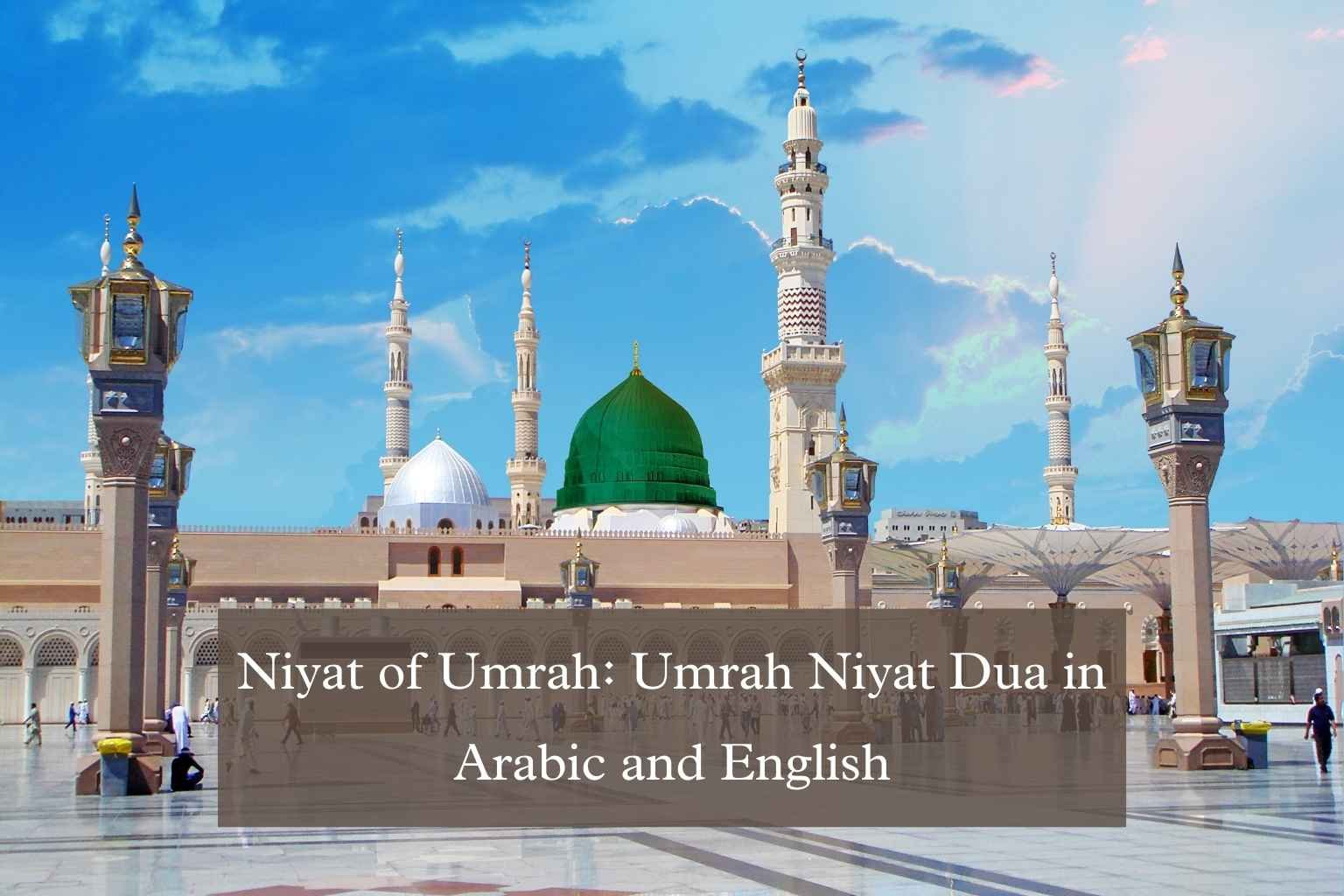 Every act of worship in Islam begins with intention, or niyyah, and Umrah is no exception. The Prophet Muhammad (ﷺ) taught us that sincerity in intention is what separates true worship from empty rituals. When setting out for Umrah, one of the most important steps is to make the Niyat of Umrah, because it defines your purpose and directs your heart towards Allah. Without niyyah, an act loses its spiritual weight.
Every act of worship in Islam begins with intention, or niyyah, and Umrah is no exception. The Prophet Muhammad (ﷺ) taught us that sincerity in intention is what separates true worship from empty rituals. When setting out for Umrah, one of the most important steps is to make the Niyat of Umrah, because it defines your purpose and directs your heart towards Allah. Without niyyah, an act loses its spiritual weight.
However, many first-time pilgrims often ask: What is the correct Niyat of Umrah? or Do I need to recite a specific Umrah Niyat Dua? The answer is that while niyyah is essentially in the heart, scholars recommend reciting the words of intention as a way of expressing devotion and focusing your mind. The Umrah Niyat Dua in Arabic and its English translation serve as a reminder of the journey you are about to take—one filled with humility, sincerity, and closeness to Allah.
In this guide, we will explain what niyyah means, the Umrah Niyat Dua in Arabic, English, and transliteration, and the step-by-step process of making intention at Miqat. Moreover, we’ll highlight why niyyah is so important in Islam and how it sets the foundation for your entire pilgrimage. By the end, you will not only know the words of the dua but also understand its deeper significance. So, let’s begin by exploring what niyyah really means and why it is the heart of worship.
What is Niyat in Islam?
In Islam, niyyah refers to the intention behind any action. The Prophet Muhammad (ﷺ) said:
“Actions are but by intention, and every man will have only that which he intended.” (Sahih al-Bukhari, Sahih Muslim)
This hadith shows that intention is not just a formality; it is the essence of worship. For Umrah, the niyyah confirms that you are performing this journey solely for the sake of Allah.
Niyat of Umrah
The Niyat of Umrah should be made at Miqat, the designated boundary where pilgrims enter into Ihram. After performing ghusl, wearing Ihram, and praying two rak’ahs, you make your intention.
Umrah Niyat Dua in Arabic
لَبَّيْكَ اللّٰهُمَّ عُمْرَةً
Transliteration: Labbayka Allahumma ‘Umrah
Umrah Niyat Dua in English
“O Allah, here I am to perform Umrah. Make it easy for me, accept it from me, and grant me sincerity in this worship.”
Step-by-Step: How to Make Intention for Umrah
Reach your Miqat (based on where you are traveling from).
Perform ghusl (ritual bath) and wear Ihram.
Pray two rak’ahs nafl prayer.
Make the Niyat of Umrah in your heart.
Recite the Umrah Niyat Dua.
Begin reciting the Talbiyah:
لَبَّيْكَ اللّٰهُمَّ لَبَّيْكَ، لَبَّيْكَ لَا شَرِيكَ لَكَ لَبَّيْكَ، إِنَّ الْحَمْدَ وَالنِّعْمَةَ لَكَ وَالْمُلْكَ، لَا شَرِيكَ لَكَ
(Labbayka Allahumma Labbayk…)
Importance of Niyat in Umrah
Without intention, Umrah is incomplete; in fact, it is the niyyah that gives life and meaning to this sacred journey. Moreover, niyyah ensures that your pilgrimage is performed purely for Allah’s sake, rather than for show, recognition, or worldly praise. In addition, it purifies your heart from distractions, strengthens your sincerity, and keeps your focus on the true purpose of worship. As a result, it not only directs your actions but also transforms the entire journey into an act of devotion that carries both spiritual depth and eternal reward.
Conclusion
The Niyat of Umrah is not just about reciting a dua; rather, it is about directing your heart and soul towards Allah with deep sincerity. Furthermore, the Umrah Niyat Dua in Arabic and English serves as a beautiful way to express that intention, helping you focus your thoughts and strengthen your connection with Allah. However, what truly matters is not the words on your tongue but the presence and sincerity of your heart. In addition, whether you are performing Umrah for the very first time or returning as an experienced pilgrim, the essence remains the same—begin your journey with a pure and sincere niyyah. As a result, you place your trust in Allah, confident that He will accept your intention, ease your steps, and reward you abundantly for your devotion.
Recommended: Benefits of Umrah: Spiritual, Emotional, and Worldly Rewards
FAQ About Niyat of Umrah
1. Do I have to say the Umrah Niyat Dua out loud?
No, niyyah is in the heart, but saying it out loud can help you focus and remind yourself of the purpose of your journey.
2. Can I make the niyyah in my own language?
Yes, intention can be made in any language. What truly matters is sincerity in your heart.
3. What if I forget the exact wording of the dua?
Don’t worry—the essence of niyyah is in your heart. Even if you forget the words, your intention counts.
4. Where should I make the niyyah for Umrah?
At the Miqat, after wearing Ihram, performing ghusl, and before beginning Talbiyah.
5. Can I make niyyah for Umrah inside Makkah?
If you are already inside Makkah, you should go to the nearest Miqat (for example, Masjid Ayesha in Tan’eem) and make your niyyah there.
6. Do men and women recite the same Umrah Niyat Dua?
Yes, the intention and dua are the same for both men and women. The only difference is in Ihram clothing, not the niyyah.
7. Is it necessary to perform two rak’ahs before making niyyah?
It is recommended to pray two rak’ahs before niyyah, but if you miss it, your Umrah is still valid as long as the intention is made.